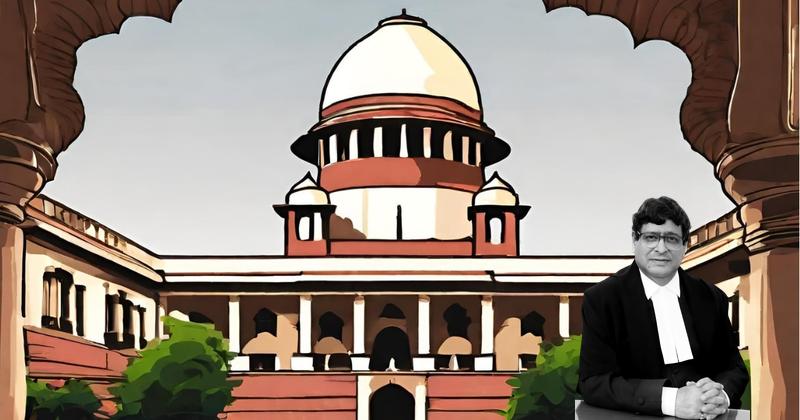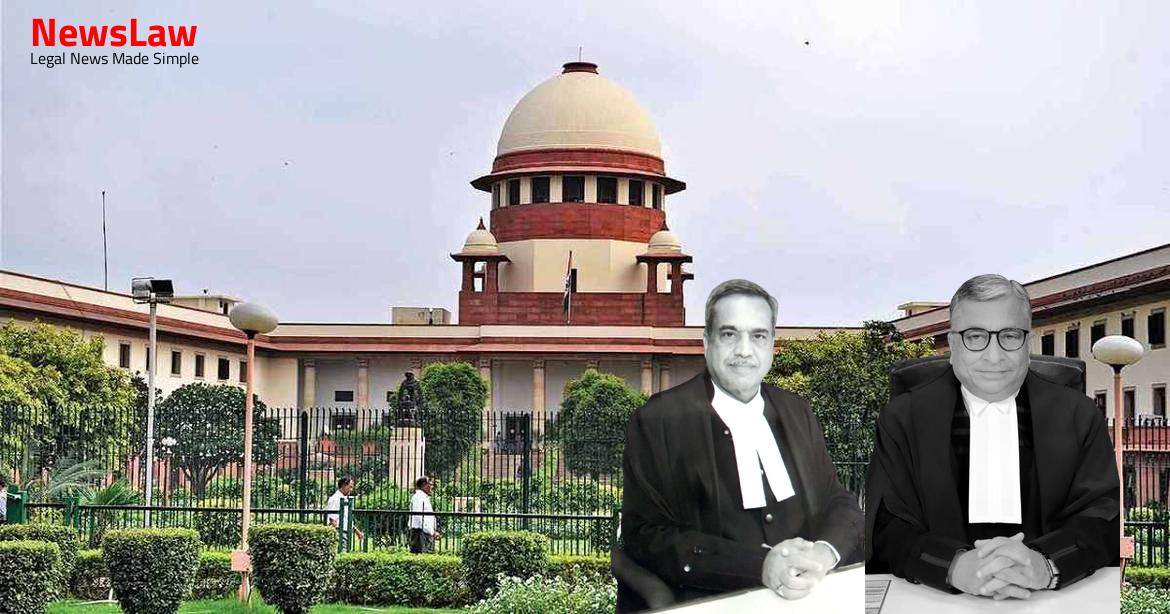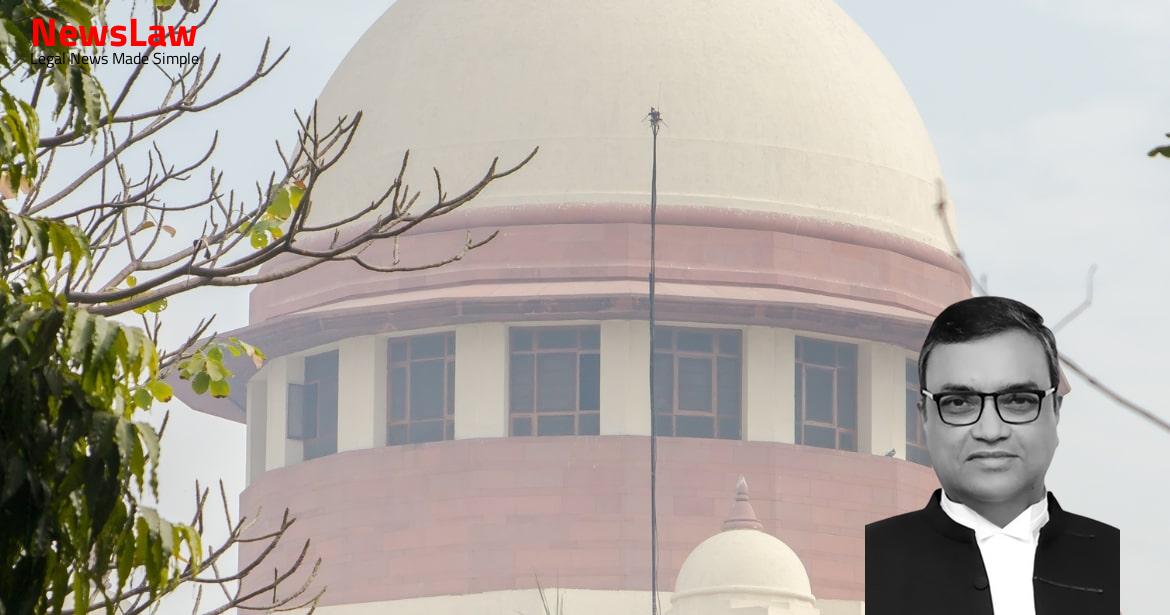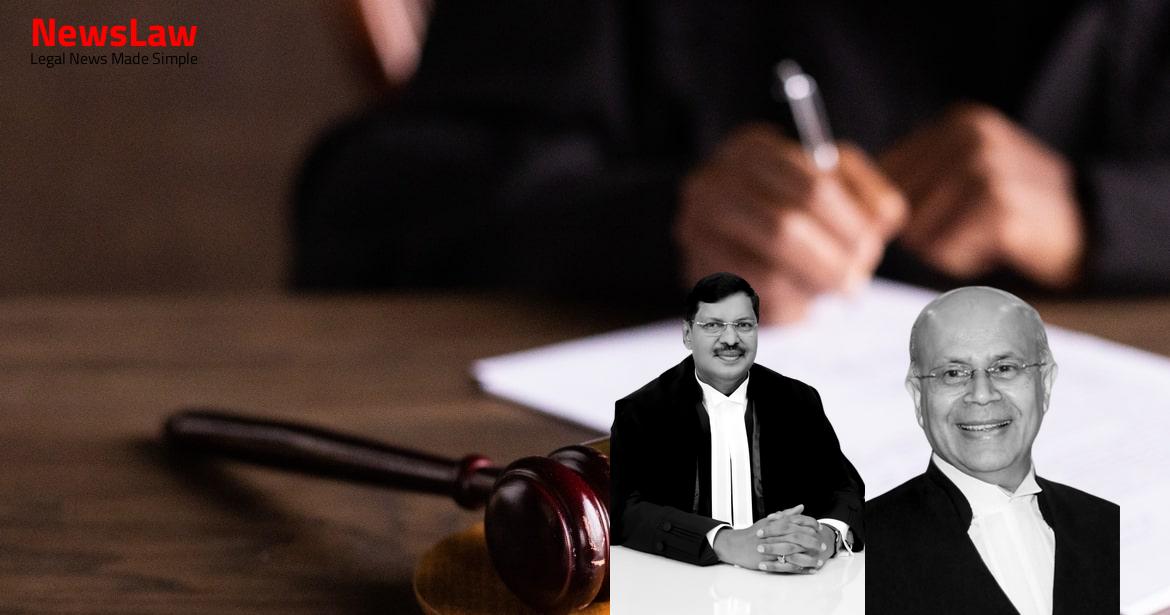Both the applications were filed on 27 October 2018 after the Special Judge, Pune under the Unlawful Activities (Prevention) Act, 1967 (“1967 Act”) had dismissed their bail plea. The Central Government, in exercise of their power under Section 6(5) read with Section 8 of the National Investigation Agency Act, 2008 directed the National Investigation Agency (“NIA”) to take up investigation of the case by an order passed on 24 January 2020. There were various events in connection with the said programme, which according to the prosecution, were provocative in nature and had the effect of creating enmity between caste groups leading to violence and loss of life, as also state wide agitation. The residences of Shoma Sen and Mahesh Sitaram Raut, who have also been implicated in the same case, were searched on 6 June 2018. Prosecution’s case is that the appellants played an active role in recruitment of and training for cadres of the said organisation and Arun Ferreira (whom we shall refer to henceforth as AF), being the appellant in Criminal Appeal No.640 of 2023 also had role in managing finances of that organisation. Anand Teltumbde, Gautam Navlakha, Hany Babu, Sagar Gorkhe, Ramesh Gaichor, Jyoti Jagtap, Stan Swami (since deceased) and Milind Teltumbde (since deceased) broadly under the same provisions of the 1860 Code and the 1967 Act. After the arrest of the appellants, a writ petition was filed before this Court [ Writ Petition (Criminal) No 260/2018- Romila Thapar and Ors.
The Court deciding on specific plea of the appellants for bail is required to independently apply its mind and examine the materials placed before it for determining the question of granting bail to the individual applicants. On general proposition of law on the aspect of grant of bail due to delay in trial, the case of Sagar Tatyaram Gorkhe and Another -vs- State of Maharashtra [(2021) 3 SCC 725] has been relied upon. Anand Teltumbde, who was added as an accused in relation to the same case on 23 August 2018 and has subsequently enlarged on bail.
Hence, there is a duty of the Court to form an opinion on perusal of the case diary or the report made under Section 173 of the Code of Criminal Procedure, 1973 (“1973 Code”) that there are reasonable grounds for believing that the accusations against such persons are prima facie true while considering the prayer for bail, to reject prayers for bail of the appellants. There is a degree of difference between the satisfaction to be recorded by the Court that there are reasonable grounds for believing that the accused is “not guilty” of such offence and the satisfaction to be recorded for the purposes of the 1967 Act that there are reasonable grounds for believing that the accusation against such person is “prima facie” true. By its very nature, the expression “prima facie true” would mean that the materials/evidence collated by the investigating agency in reference to the accusation against the accused concerned in the first information report, must prevail until contradicted and overcome or disproved by other evidence, and on the face of it, shows the complicity of such accused in the commission of the stated offence.
State of Maharashtra, [(2005) 5 SCC 294 : 2005 SCC (Cri) 1057], wherein a three-Judge Bench of this Court was called upon to consider the scope of power of the Court to grant bail.
The wording of Section 21(4), in our opinion, does not lead to the conclusion that the court must arrive at a positive finding that the applicant for bail has not committed an offence under the Act. If such a construction is placed, the court intending to grant bail must arrive at a finding that the applicant has not committed such an offence. The findings recorded by the court while granting or refusing bail undoubtedly would be tentative in nature, which may not have any bearing on the merit of the case and the trial court would, thus, be free to decide the case on the basis of evidence adduced at the trial, without in any manner being prejudiced thereby. We also feel that such expression of prima facie reasons for granting bail is a requirement of law in cases where such orders on bail application are appealable, more so because of the fact that the appellate court has every right to know the basis for granting the bail. Therefore, we are not in agreement with the argument addressed by the learned counsel for the accused that the High Court was not expected even to indicate a prima facie finding on all points urged before it while granting bail, more so in the background of the facts of this case where on facts it is established that a large number of witnesses who were examined after the respondent was enlarged on bail had turned hostile and there are complaints made to the court as to the threats administered by the respondent or his supporters to witnesses in the case.
…
The considerations which normally weigh with the court in granting bail in non-bailable offences have been explained by this Court in State v. The nature of the accusations to invoke the bail-restricting clause has been stated in the supplementary chargesheet in which the appellants were implicated. It is also stated by the protected witness that, in 2002 VG wanted to resign from the party but his resignation was not accepted. (2) Whoever, in any way, assists any unlawful activity of any association declared unlawful under section 3, after the notification by which it has been so declared has become effective under sub-section (3) of that section, shall be punishable with imprisonment for a term which may extend to five years, or with fine, or with both.
— (1) Whoever does any act with intent to threaten or likely to threaten the unity, integrity, security, economic security or sovereignty of India or with intent to strike terror or likely to strike terror in the people or any section of the people in India or in any foreign country,— (a) by using bombs, dynamite or other explosive substances or inflammable substances or firearms or other lethal weapons or poisonous or noxious gases or other chemicals or by any other substances (whether biological radioactive, nuclear or otherwise) of a hazardous nature or by any other means of whatever nature to cause or likely to cause— (i) death of, or injuries to, any person or persons; or (ii) loss of, or damage to, or destruction of, property; or (iii) disruption of any supplies or services essential to the life of the community in India or in any foreign country; or (iiia) damage to, the monetary stability of India by way of production or smuggling or circulation of high quality counterfeit Indian paper currency, coin or of any other material; or (iv) damage or destruction of any property in India or in a foreign country used or intended to be used for the defence of India or in connection with any other purposes of — Whoever, in India or in a foreign country, directly or indirectly, raises or provides funds or collects funds, whether from a legitimate or illegitimate source, from any person or persons or attempts to provide to, or raises or collects funds for any person or persons, knowing that such funds are likely to be used, in full or in part by such person or persons or by a terrorist organisation or by a terrorist gang or by an individual terrorist to commit a terrorist act, notwithstanding whether such funds were actually used or not for commission of such act, shall be punishable with imprisonment for a term which shall not be less than five years but which may extend to imprisonment for life, and shall also be liable to fine. Punishment for conspiracy, etc.—Whoever conspires or attempts to commit, or advocates, abets, advises or incites, directs or knowingly facilitates the commission of, a terrorist act or any act preparatory to the commission of a terrorist act, shall be punishable with imprisonment for a term which shall not be less than five years but which may extend to imprisonment for life, and shall also be liable to fine. Punishment for recruiting of any person or persons for terrorist act.—Whoever recruits or causes to be recruited any person or persons for commission of a terrorist act shall be punishable with imprisonment for a term which shall not be less than five years but which may extend to imprisonment for life, and shall also be liable to fine. —(1) A person, who associates himself, or professes to be associated, with a terrorist organisation with intention to further its activities, commits an offence relating to membership of a terrorist organisation: Provided that this sub-section shall not apply where the person charged is able to prove— (a) that the organisation was not declared as a terrorist organisation at the time when he became a member or began to profess to be a member; and (b) that he has not taken part in the activities of the organisation at any time during its inclusion in the First Schedule as a terrorist organisation.
—(1) A person commits the offence relating to support given to a terrorist organisation,— (a) who, with intention to further the activity of a terrorist organisation,— (i) invites support for the terrorist organization, and (ii) the support is not or is not restricted to provide money or other property within the meaning of section 40; or (b) who, with intention to further the activity of a terrorist organisation, arranges, manages or assists in arranging or managing a meeting which he knows is— (i) to support the terrorist organization, or (ii) to further the activity of the terrorist organization, or (iii) to be addressed by a person who associates or professes to be associated with the terrorist organisation; or (c) who, with intention to further the activity of a terrorist organisation, addresses a meeting for the purpose of encouraging support for the terrorist organisation or to further its activity. Explanation.—For the purposes of this sub- section, a reference to provide money or other property includes— (a) of its being given, lent or otherwise made available, whether or not for consideration; or (b) raising, collecting or providing funds through production or smuggling or circulation of high quality counterfeit Indian currency. (2) Section 167 of the Code shall apply in relation to a case involving an offence punishable under this Act subject to the modification that in sub-section (2),– (a) the references to “fifteen days”, “ninety days” and “sixty days”, wherever they occur, shall be construed as references to “thirty days”, “ninety days” and “ninety days” respectively; and (b) after the proviso, the following provisos shall be inserted, namely:– “Provided further that if it is not possible to complete the investigation within the said period of ninety days, the Court may if it is satisfied with the report of the Public Prosecutor indicating the progress of the investigation and the specific reasons for the detention of the accused beyond the said period of ninety days, extend the said period up to one hundred and eighty days: Provided also that if the police officer making the investigation under this Act, requests, for the purposes of investigation, for police custody from judicial custody of any person in judicial custody, he shall file an affidavit stating the reasons for doing so and shall also explain the delay, if any, for requesting such police custody.
(3) Section 268 of the Code shall apply in relation to a case involving an offence punishable under this Act subject to the modification that– (a) the reference in sub-section (1) thereof (i) to “the State Government” shall be construed as a reference to “the Central Government or the State Government. (7) Notwithstanding anything contained in sub- sections (5) and (6), no bail shall be granted to a person accused of an offence punishable under this Act, if he is not an Indian citizen and has entered the country unauthorisedly or illegally except in very exceptional circumstances and for reasons to be recorded in writing.” Allegations against these two appellants appear, inter-alia, from paragraphs 17.5, 17.9, 17.10, 17.11, 17.15 17.18 and 17.19 of the first supplementary chargesheet. Since the participation of accused No.1 Varavara Rao, No.2 Vernon Gonsalves, No.3 Arun Ferreira, No.4 Sudha Bharadwaj and other accused in the said conspiracy of the banned organization C.P.I (Maoist) became clear, their residences and those places from where evidence could possibly be obtained were searched on 28/08/2018. 11
During investigation of the said crime it has emerged that I.A.P.L (Indian Association of People’s Lawyers) is a frontal organization of the banned organization C.P.I (Maoist) and is working according to the organization’s direction and orders and with its economic backing to fulfill the objectives of the banned organization.
It has emerged from the evidence obtained that frontal organization which supposedly promote democratic rights and civil liberties, such as Indian Association of People’s Lawyers (I.A.P.L), Anuradha Ghandy Memorial Committee (A.G.M.C), Kabir Kala Manch, Persecuted Prisoners Solidarity Committee (P.P.S.C) are set up or similar organizations are infiltrated in as systematic manner and under their cover the work related to the terrorist organization C.P.I (Maoist) is being accomplished is an extremely secret manner. Accused no.1 in the said offence Varavara Rao, Accused Rona Wilson and Surendra Gadling along with the Polit Bureau and Central Committee and other underground members of the banned terrorist organisation C.P.I.(Maoist) hatched a criminal conspiracy and obtained the participation of the accused no.02 Vernon Gonsalves, accused no.3 Arun Ferreira and accused no.04 Sudha Bharadwaj in the said conspiracy and got them to participate as active members of the banned C.P.I. The protected witness has made another statement on 27 July 2020 before the police in which he has referred to participation of AF in a seminar of Revolutionary Democratic Front in Hyderabad in the year 2012 and VG in September 2017 by an organisation referred to as “Virasam”.
The prosecution has also relied on statements made by one Kumarsai, who appears to have been associated with the same organisation. There were charges against him also under Section 9(B) of the Explosives Act 1884, Sections 4(b) and 5 of the Explosives Substances Act, 1908 and Sections 10 (a)(ii)(iii)(iv), 10(b), 16, 17, 18, 20 and 23 of the 1967 Act and Sections 120B and 121A of 1860 Code. The High Court had invoked the allegations of recruiting cadres for the banned organisation, to import the provisions of Section 18B of the 1967 Act. The High Court found that there were sufficient materials in the chargesheet against the appellants and there were reasonable grounds to believe that the accusation of commission of offences punishable under Chapters IV and VI of the 1967 Act was prima facie true in relation to both the appellants. The second document is a letter dated 18 April 2017, marked as Annexure “R-10”, addressed to one “Comrade Prakash” and is claimed to have been written by “R”. The third document is a letter dated 25 September 2017, marked as Annexure “R-12”, written by “Comrade Prakash”, which is claimed to have been recovered from the computer of Surendra Gadling and addressee thereof is “Comrade Surendra”.
Case Title: VERNON Vs. THE STATE OF MAHARASHTRA (2023 INSC 655)
Case Number: Crl.A. No.-000639-000639 / 2023



